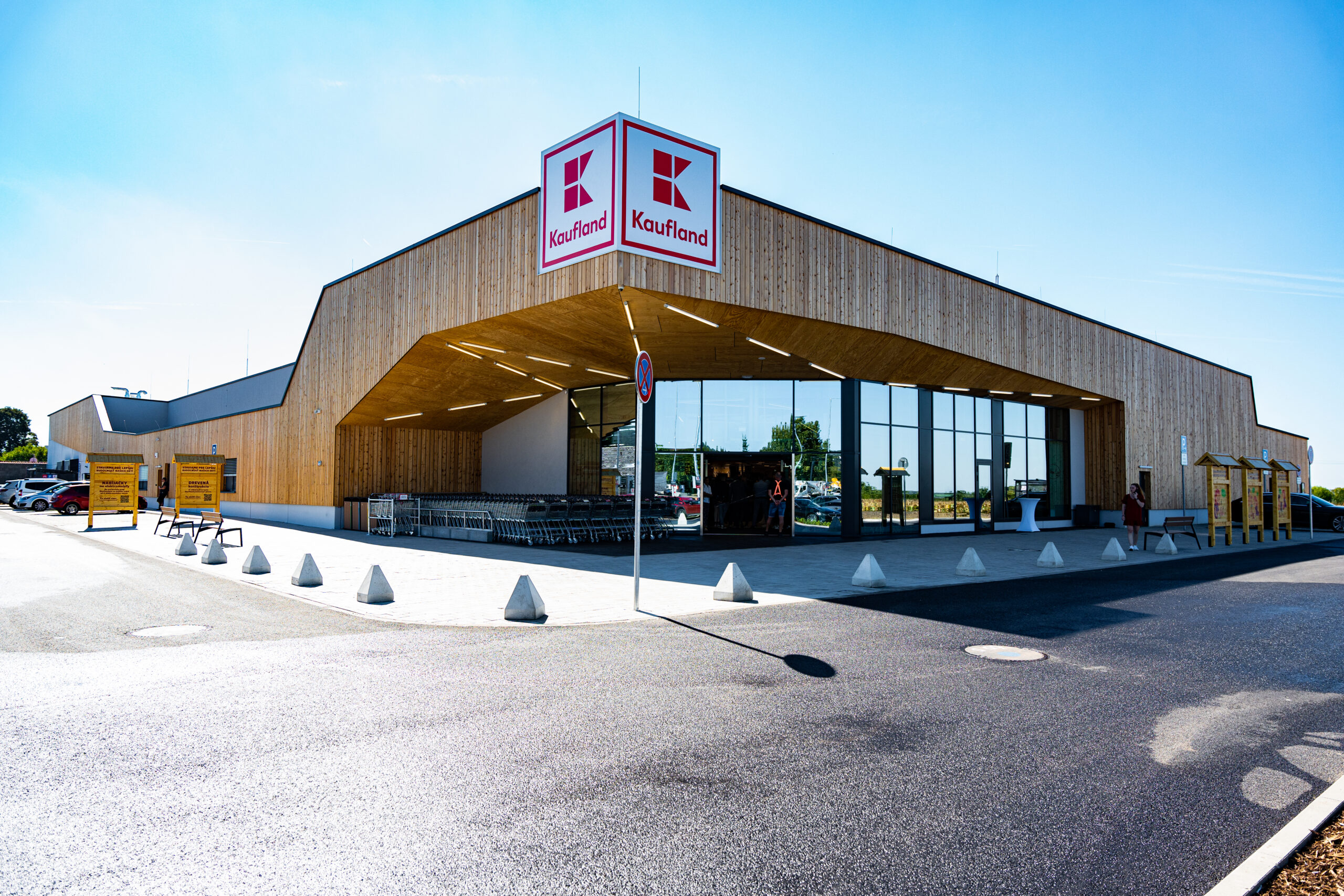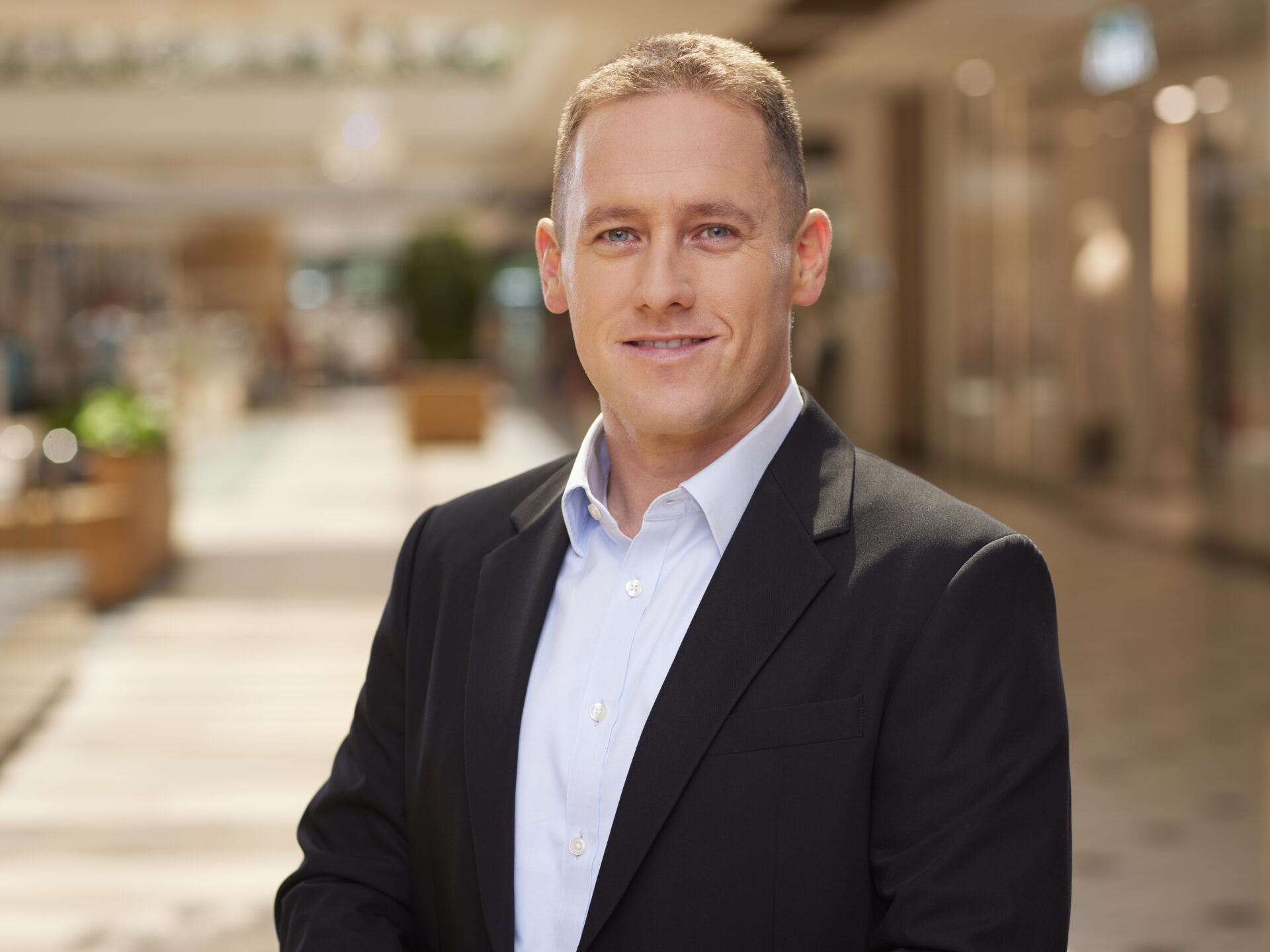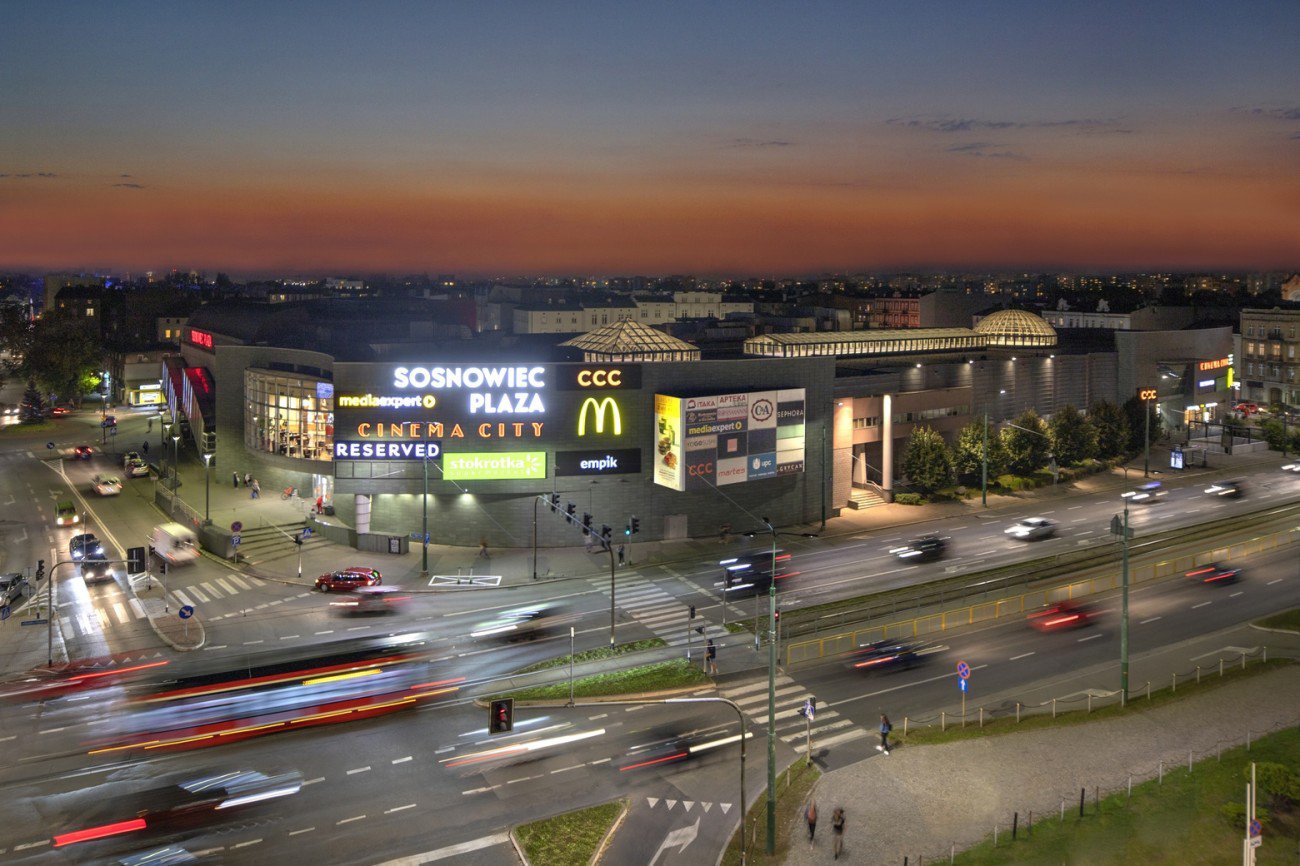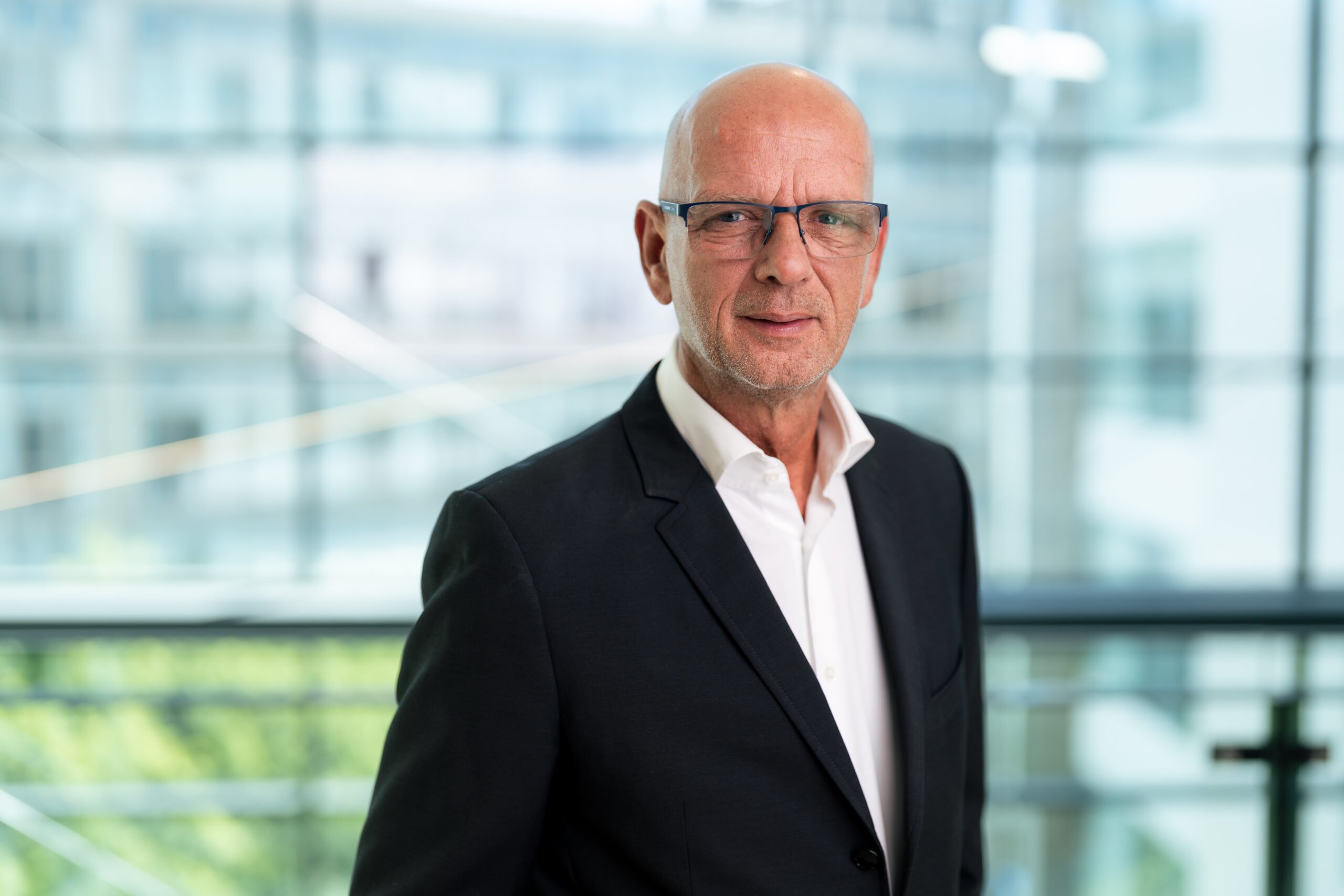The real estate markets have been shaken. The challenges deriving from a new interest rate environment are continuing to determine investor behaviour. To start the transaction market engine again buyer and seller expectations will need to converge as will those of financing partners in the industry.
On the other hand, the pandemic was a real test for the industry. In the end, retail has proven it can survive and is even increasingly back in investors’ favour. Esp. in CEE countries, footfall has returned to retail locations. Groceries are a stable bank in this context. Everyday products are not in danger of online competition and are thus a footfall guarantee for a location.
Strong partners, strong locations!
Kaufland operates more than 1,500 supermarkets in Europe. Since its first opening in 1968 in Backnang, Southern Germany, Kaufland has developed into an international retail company and is today one of the most relevant brands in food retailing, particularly in CEE.
Expansion remains in focus, esp. with partners in the national and international real estate industry.
Over the last years around 190 new supermarkets and almost 1,500,000 sqm of new retail space have been established across Europe, about a third of this in the CEE countries.

Kaufland’s large supermarket concept
Kaufland’s great appeal is particularly evident in the revitalization of existing retail locations. Within the last four years, more than 100 large retail properties (mainly former big hypermarkets and DIY stores in Germany, Poland and Slovakia have been revitalized and future-proofed by Kaufland hand in hand with partners from the real estate industry. Recent examples are Fort Wola in Warsaw and Ozimksa Park in Opole, both in Poland.

Strong partners, strong locations, Fort Wola
Being a strong partner for revitalizations a major key to success is a flexible store concept: whether as a stand-alone supermarket, in retail parks and shopping centres or even in the city centre. The focus on everyday needs means our supermarkets are footfall anchors in rural areas, district centres in metropolitan areas, as well as within mixed-use properties. Whether the stores are at ground level, are elevated or have underground parking solutions.
Kaufland also always offers a comprehensive shopping experience by working together with other co-partners at our locations: one-stop shopping throughout Europe in over 11,800 leased units and on more than 1.3 million sqm of leased space, from pharmacies to laundries to cafés.
ESG in the focus
Kaufland is actively engaged in addressing ESG issues with its properties and set standards in all eight European country markets.
Sustainability has long been a strategic consideration with specific measures implemented within our company. ESG therefore is not an option. We must act together. As part of the Schwarz Group, we joined the Science-based Targets Initiative (SBTi) in 2020 and have set our climate targets, which were validated by the SBTi, in addition to our group-wide climate targets. By 2030, we thus aim to reduce our operational CO2 emissions by at least 80 percent compared to 2019.
Kaufland’s timber market – outstanding benchmark in CEE
The timber market in Slovakia is one of the recent and outstanding examples of Kaufland’s efforts in sustainable construction. It was opened in September 2023 near the Slovakian capital of Bratislava. To the knowledge so far, the first big supermarket in CEE with a sales area of about 2,500 sqm using this construction method and so one of the most relevant recent real estate innovations in the region.
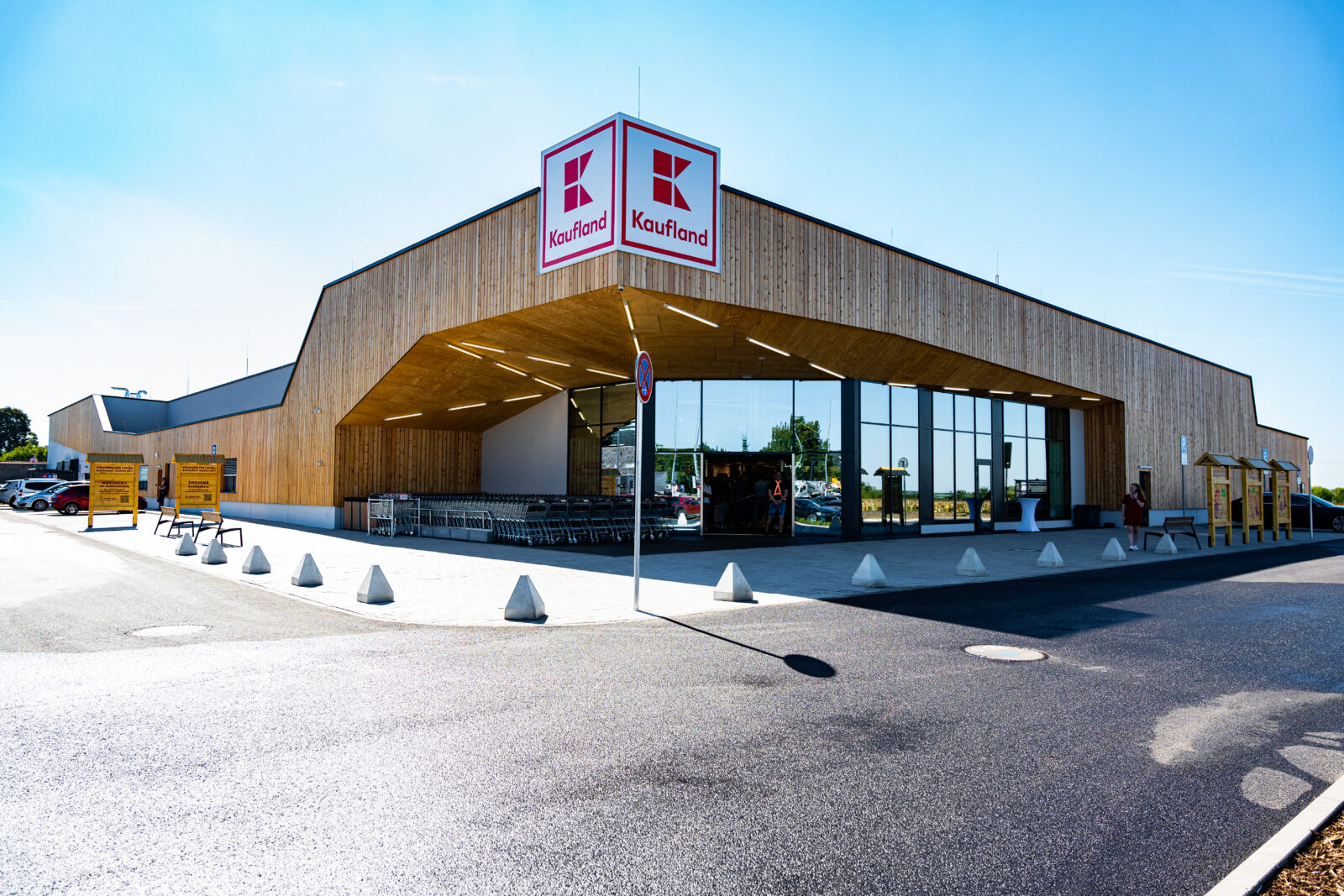
Kaufland’s timber market – outstanding benchmark in CEE
The supermarket is planned according to the BREEAM Excellent certifications and thus underlines this outstanding performance. It is a relevant contribution towards more climate protection with a whole host of measures. In the construction and operation of Kaufland’s properties, the principle is to conserve resources as much as possible and rely on new solutions to build greener.
- Wood is a naturally renewable raw material that stores CO2 even after processing. It thus contributes to reducing CO2 emissions. Due to its poor thermal conductivity, wood offers good insulation. : Wood requires very little energy to dismantle and recycle and thus saves 514 tonnes of CO2 compared to conventional concrete construction.
- Photovoltaics and heat pumps are essential components for green energy and heat generation in the store.
- A green roof and facades provide shelter and a habitat for insects and birds. The area also acts as a natural CO2 reservoir and green air conditioning system.
- State-of-the-art LED lighting not only minimizes energy use but also makes the space feel modern and comfortable.
- The paving allows water to percolate directly and is also made from environmentally friendly recycled building materials.
- Electric charging stations contribute actively to a more sustainable traffic turn.
- Insect hotels give a natural shelter for animals and support the local biodiversity.
The timber market in Slovakia is a good example of how to rely on recycled or renewable building materials. Many puzzle pieces are involved in creating an overall sustainable concept: It’s the first Kaufland store using timber as the main construction material.
We love CEE
Kaufland is an international retail company with over 1,500 stores and more than 155,000 employees in eight countries.
Whether in Poland, Romania, the Czech Republic, Slovakia, Bulgaria, Croatia, the Republic of Moldova or Germany, Kaufland represents the best in fresh produce, has a wide selection of products, and low prices and offers a convenient shopping experience everywhere.
On average, we offer our customers 30,000 items for all their everyday needs.
Kaufland’s store concept combines modern architecture, maximum flexibility, sustainable construction and comprehensive service – tailor-made for each location.
The company is part of the Schwarz Group, which is one of Europe’s leading food retailers. Kaufland is thus an international, reliable partner in all countries.
In the Czech Republic, Slovakia and Germany, Kaufland is already running successfully an omni-channel approach to combine online and offline advantages for the customers.
Kaufland is headquartered in Neckarsulm, Germany, and has national subsidiaries in all countries in able to respond precisely to local conditions.
Contributed by Dr. Angelus Bernreuther, Head of Investor Relationship Management, Kaufland
